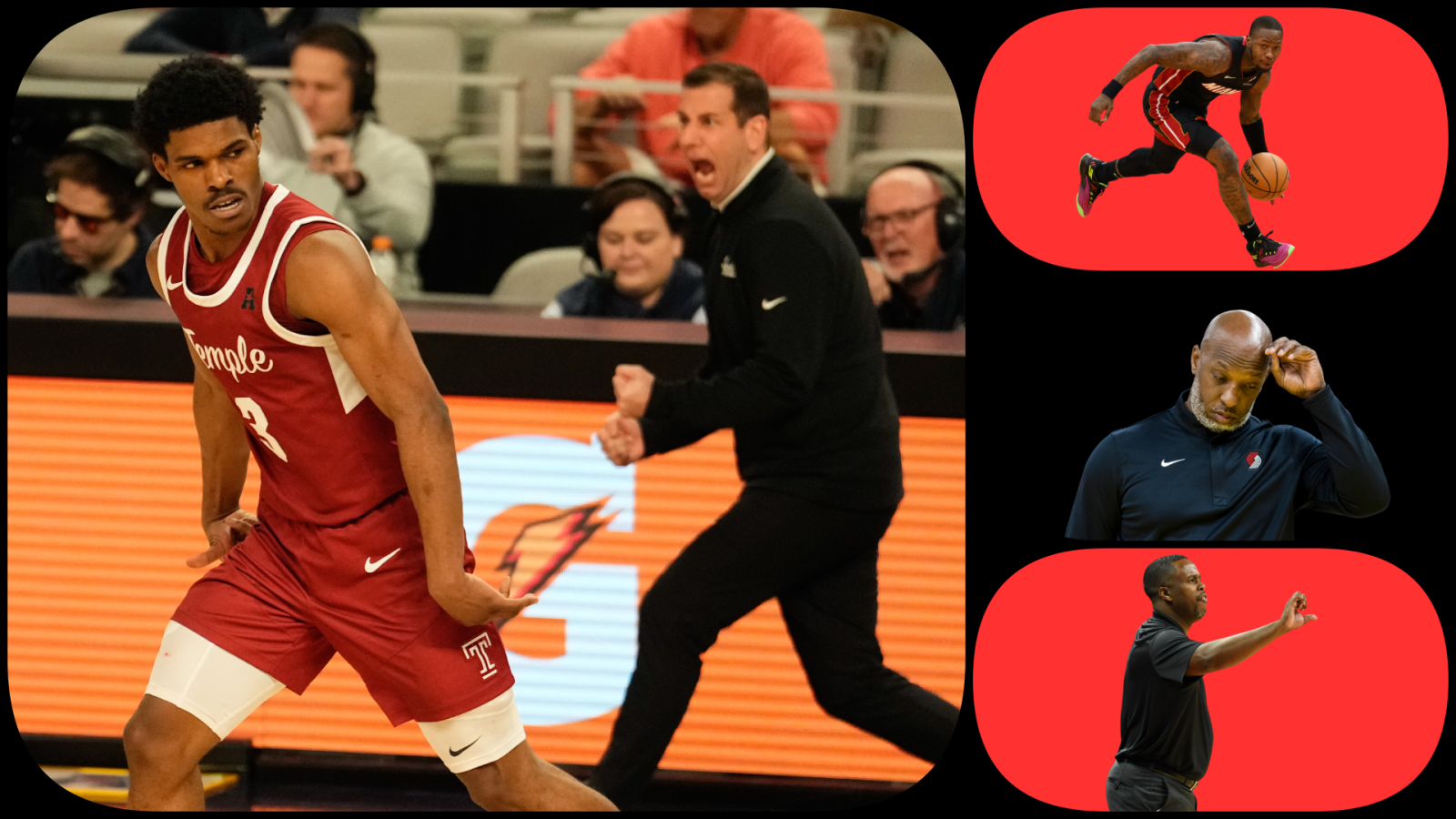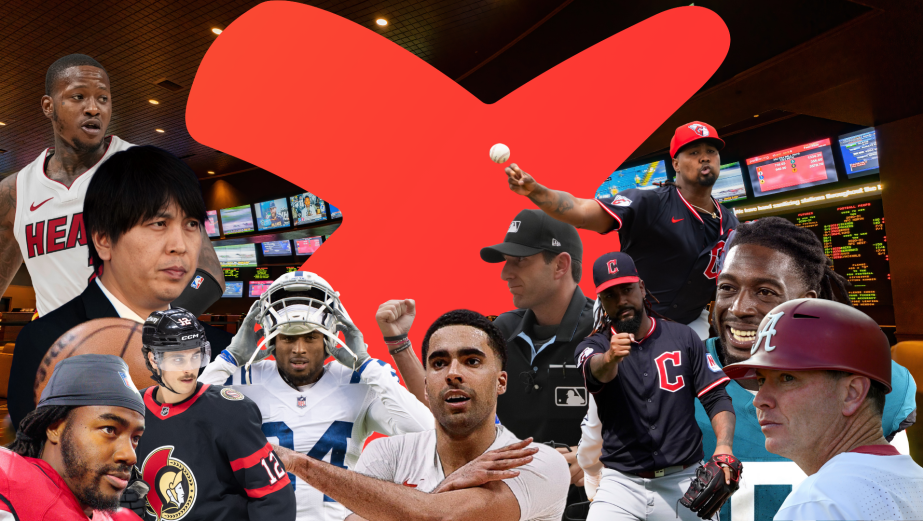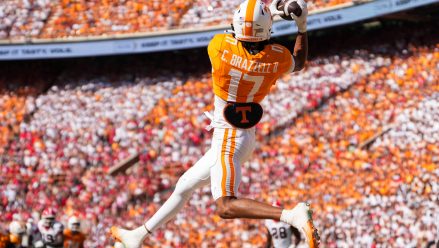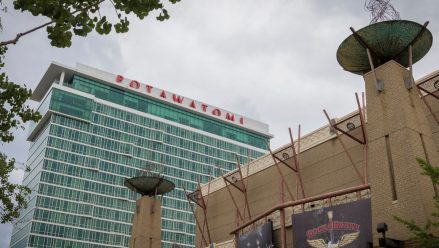The process of debriding sports betting corruption from men’s college basketball and the NBA continued late last week with another player losing the rest of his intercollegiate eligibility plus the announcement of possible plea deals in the federal game-fixing case involving former Miami Heat guard Terry Rozier.
On Friday, the same day NCAA Division I members voted to rescind a new rule that would have allowed student-athletes and staff to wager on professional sports, the body announced that Temple junior men’s basketball player Hysier Miller had been stripped of his eligibility for betting, including on Owls games — some where he bet against them.
Miller had not played since the 2023-24 season. He cooperated with NCAA and Temple investigators and claimed that he didn’t remember betting against his team. All of Miller’s bets involving Temple came as part of parlays, the NCAA reported, from Nov. 7, 2022 through March 2, 2024, when he, then a starter, was found to have made 39 impermissible bets on pro and college games totalling $473.
Miller’s alleged bets against Temple:
ESPN reported that the bets against Temple both came in losses: Nov. 22, 2023, against Mississippi, and Feb. 8, 2024, versus Memphis.
In the 77-76 loss to Mississippi, in which the Rebels improved to 5-0, Miller led Temple with 21 points in playing all 40 minutes.
In the 84-76 loss to Memphis, Miller fouled out with 12 points after playing 38 minutes. The Tigers improved to 17-6, as the Owls dropped to 8-15.
Miller averaged 15.9 points per game that season.
Said Miller attorney Jason Bologna in a statement: “The key takeaway here is the NCAA found no evidence that Hysier Miller shaved points. The NCAA conducted a long and thorough investigation before reaching that conclusion. Hysier gave them full access to his cell phone and bank account, and he answered every question they asked him. He admitted to placing parlay bets, but he denied shaving points in any game, and the NCAA’s findings confirm that they accept Hysier was honest and cooperative with their investigation.”
A former Temple special assistant, Camren Miller, and a basketball graduate student, Jaylen Bond, were also found to have made college and pro bets and are now subject to a one-year “show-cause” order for future employment at an NCAA school.
Each would be required to lead a sports betting rules seminar with their new program if hired during the show-cause period and would be suspended for three regular season games.
The NCAA said that the three were unaware of each other’s activity.
NBA co-defendants mulling plea deal
A paperwork update filed in the Eastern District of New York federal court on Thursday revealed that “several defendants” in both the game-fixing case being brought against six, which includes Rozier and ex-player and coach Damon Jones, and the rigged poker case involving former Portland Trail Blazers coach and Hall of Fame player Chauncey Billups, are in the preliminary stages of discussing plea deals. None of the defendants discussing pleas has been revealed.

Billups on Monday pleaded not guilty to wire fraud conspiracy and money laundering conspiracy related to accusations he participated in rigged poker games.
A CNN legal analyst on Monday said that the indictments unsealed on Oct. 23 don’t suggest that Billups necessarily knew the poker games with which he was involved were rigged.
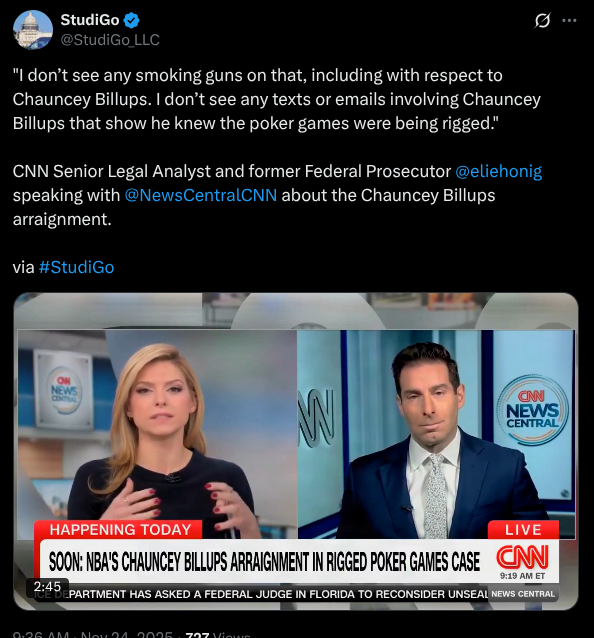
Billups was not indicted in the sports betting case, where Rozier and Jones are charged with conspiracy to commit wire fraud and conspiracy to commit money laundering. But his professional profile exactly matches that of a “Co-Conspirator 8,” who allegedly tipped gamblers to the Trail Blazers’ plan to sit starters for the purpose of tanking a 2023 game for improved draft lottery position.
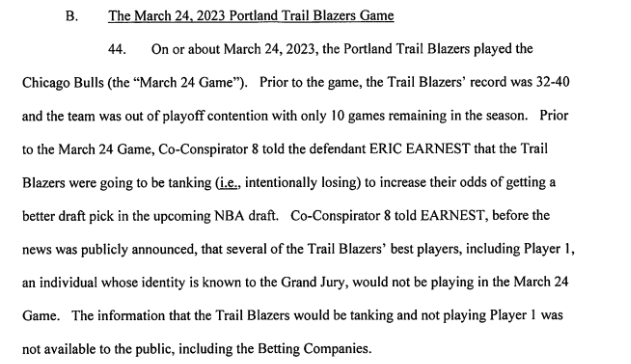
Rozier is scheduled to be arraigned on Dec. 8 in Brooklyn, New York. Rozier and Billups are on unpaid leave.
u.s._v._eric_earnest_indictmentWhy is basketball susceptible to corruption?
Integrity monitors like the ones that helped flag the suspicious betting in the Rozier case and its starting point — the Jontay Porter investigation that led to the former Toronto Raptor’s banishment in 2024 — note that outcome-manipulation is easier the fewer players that are involved.
An industry source told InGame that “we can say pretty definitively that sports or events that require a single individual are easier to manipulate than events that require multiple individuals.”
Individual sports like tennis, boxing, and increasingly mixed martial arts are particularly vulnerable. Cleveland Guardians pitchers Emmanuel Clase and Luis L. Ortiz are accused in a federal fraud conspiracy case of manipulating the outcomes of pitches, something they alone could control.
And just as NBA championships can be won with the proper “Big Three,” games, or at least prop bets, can be corrupted by an unscrupulous single actor. The overlaps in the American basketball industry are also potentially problematic. Meanwhile, fan and bettor trust in the NBA is suffering, according to a recent Quinnipiac poll.
The Boston College and Arizona State point-shaving scandals as well as the Chicago White Sox conspiracy to cede the 1919 World Series to Cincinnati unraveled in part because they involved multiple participants whose games are more expensive to fix, the source noted. There also are more variables that could expose a plot. The dynamic has theoretically made football, with its numerous interdependent players, more difficult to manipulate.
Earlier this month, the NCAA announced that six men’s basketball players involved in three separate investigations had been banned for game-manipulation or illegal information-sharing.

